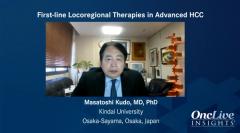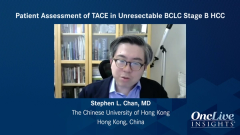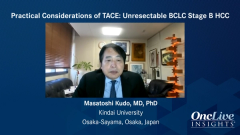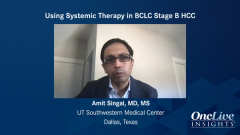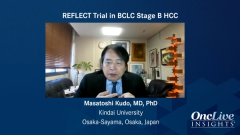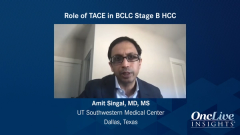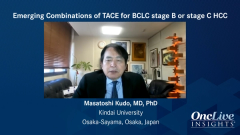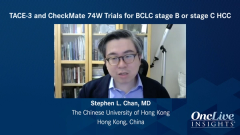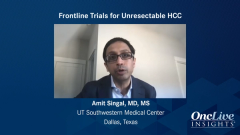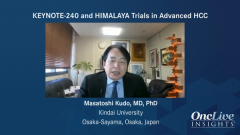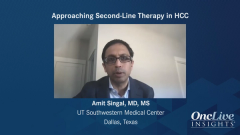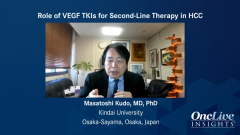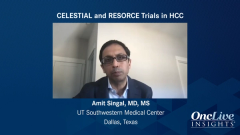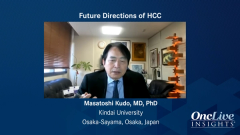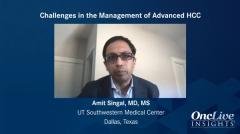
Using Systemic Therapy in BCLC Stage B HCC
Assessing outcomes associated with systemic therapy, such as lenvatinib and sorafenib, for patients with BCLC (Barcelona Clinic Liver Cancer) stage B hepatocellular carcinoma based on data from the IMbrave150 and GIDEON trials.
Episodes in this series

Stephen L. Chan, MD: For the IMbrave150 study, we know it is a phase 3 clinical trial that has demonstrated the superiority of atezolizumab and bevacizumab in overall survival and other secondary parameters. If you look at the populations in this study, most of the patients have BCLC [Barcelona Clinic Liver Cancer] stage C. A proportion of patients in this study, around 15% to 16%, have BCLC stage B disease. In the subgroup analysis, we can see that for the BCLC B subpopulation, the progression-free survival, you can see they are favoring the combination arm. In the overall survival, the confidence interval crosses 1, but this is probably because of the smaller sample size of the patients with BCLC stage B.
Amit Singal, MD, MS: One of the benefits of sorafenib being on the market for the past 10 years is that we’ve had real-world data come out that support the use of sorafenib in expanded patient populations. Once again, when we look at the registration trials for sorafenib, both the SHARP as well as the Asia-Pacific trial, these trials included very well-selected patients, Child-Pugh A disease, good performance status, and unresectable HCC [hepatocellular carcinoma]. But these patients, unfortunately, represent a minority of the patients we see in clinical practice. We see many patients who have Child-Pugh B disease, many who have impaired performance status and may not have had the strict criteria from a comorbidity standpoint, that they would have qualified to get into the SHARP or Asia-Pacific trial. We have many real-world data that have come out over the following 10-year period that support sorafenib and its safety in these expanded patient populations.
One of the best real-world data registry trials in my opinion is GIDEON. GIDEON was a prospective registry of sorafenib, once again used in clinical practice, multicenter, multinational in terms of its approach to patients with unresectable HCC. In the GIDEON study, we see sorafenib being used, for example, in patients with Child-Pugh B and Child-Pugh C disease. The nice thing that GIDEON shows is safety in these patient populations, where we see similar AE [adverse event] profiles across these different populations. Given the competing risk of liver mortality, we do see shorter survival, but that isn’t surprising. That’s really given the higher competing risk of liver mortality and the shorter expected survival of these patients.
But at least as a practicing provider, I can use these data and say that I could use sorafenib in these patient populations, and at least be reassured that I’m not causing harm, that the AE profile is similar and that these patients can tolerate sorafenib in the setting of impaired liver dysfunction.
Transcript Edited for Clarity


